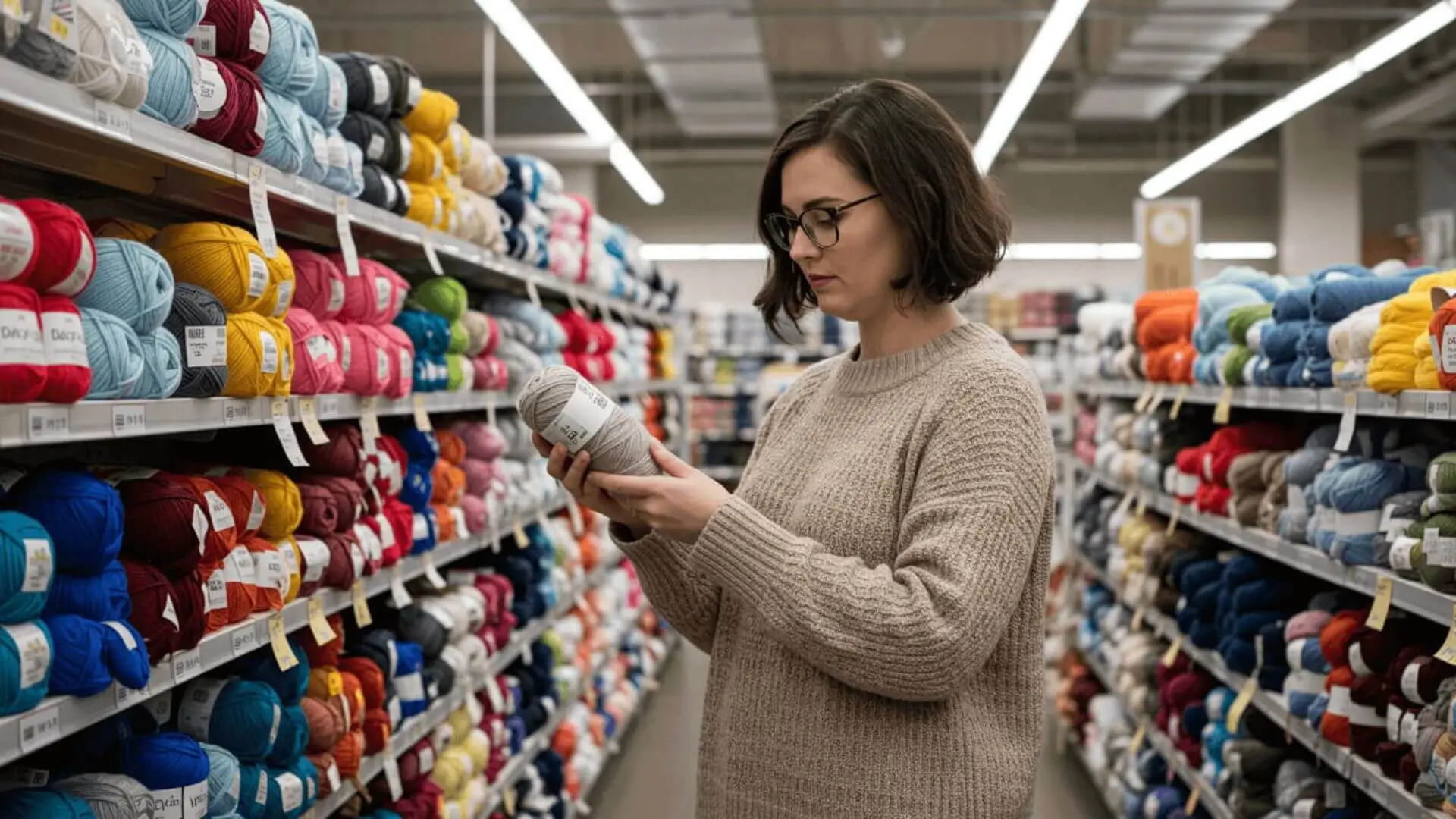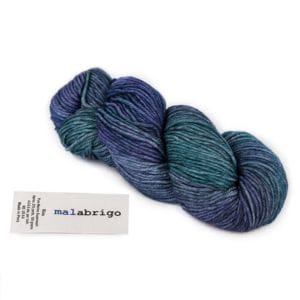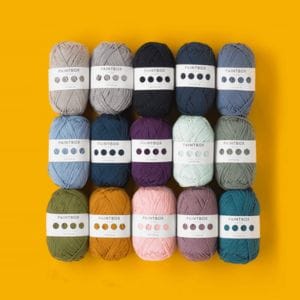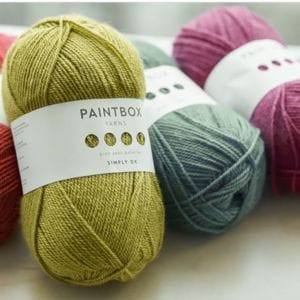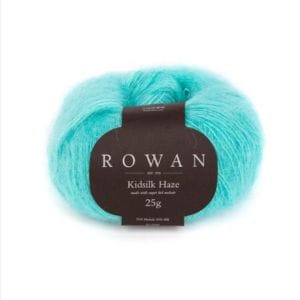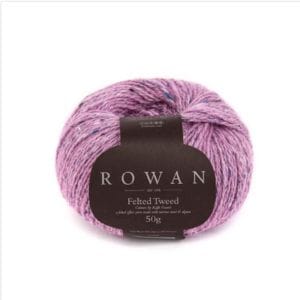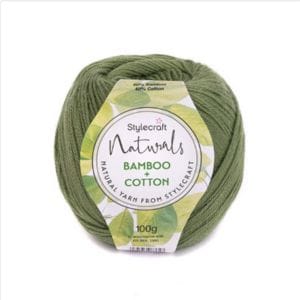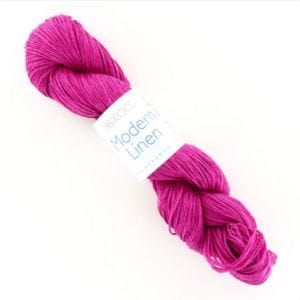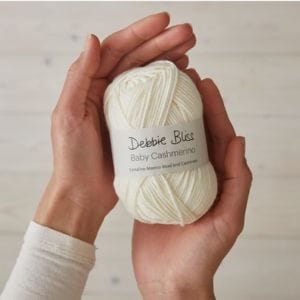Shop the LoveCrafts Yarn Sale →
When you pick up a ball of yarn at your local craft store or shop online at LoveCrafts, the first thing you’ll notice is the yarn label, a little rectangle full of numbers, symbols, and fiber facts. Far from decoration, this label is your roadmap to a successful project. If you can read it well, you’ll know how much to buy, how to care for your finished piece, and whether it’s the right yarn for your pattern.
If you’re new to yarn crafts, you may also enjoy reading The Ultimate Yarn Crafts Guide for a complete beginner-friendly foundation with tips, techniques, and inspiration.
1) Brand, Yarn Name & Colorway
Every yarn label starts with the basics, brand, yarn line, and color (name and/or number).
- Brands: Lion Brand, Rowan, Stylecraft, Paintbox
- Yarn lines: Paintbox Cotton DK, Debbie Bliss Baby Cashmerino, Simply Aran, Simply Chunky
- Colorway: “Duck Egg” (#026), “Lipstick” (#1246), etc.
Pro tip: Always check the dye lot number when buying multiple skeins to avoid color mismatch.
2) Fiber Guide: Properties & Best Uses
The fiber content on a yarn label tells you everything about how the yarn will feel, perform, and last. Always check this first, it’s the key to choosing the perfect yarn for your project!
Wool
Pros: Warm, elastic, durable, great stitch definition
Best for: Sweaters, winter accessories, blankets
Cotton
Pros: Breathable, machine-washable, soft
Best for: Summer wear, baby clothes, dishcloths
Acrylic
Pros: Affordable, easy-care, hypoallergenic
Best for: Budget projects, baby items, blankets
Silk
Pros: Luxurious drape, temperature-regulating
Best for: Elegant shawls, special occasion wear
Alpaca
Pros: Ultra-soft, hypoallergenic, warmer than wool
Best for: Luxury accessories, sensitive skin
Bamboo
Pros: Eco-friendly, silky soft, breathable
Best for: Summer tops, drapey projects
Linen
Pros: Gets softer with wash, cool and breathable
Best for: Summer clothing, home textiles
Fiber Blends
Why blends work: Combining fibers enhances performance and appearance. The first-listed fiber dominates, while others add specific benefits.
3) Yarn Weight & Gauge
The yarn label will list a yarn weight (DK, Worsted, Bulky, etc.) and a gauge chart showing stitches/rows over 4″ (10cm) with a suggested hook/needle size.
- Match weight to your pattern for correct drape and size.
- If gauge doesn’t match, adjust your needle or hook size.
Learn more in our Yarn Weights Guide.
4) Yardage & Skein Weight
Labels list the length (yards/meters) and skein weight (g/oz). Patterns often specify yardage, so check before you buy to avoid running short mid-project. When in doubt, buy an extra skein—especially for garments and blankets.
Quick formula: Required skeins = (Pattern yardage ÷ skein yardage) + 10% extra.
5) Care Symbols
Care symbols tell you how to wash, dry, and iron your project so it stays beautiful for years:
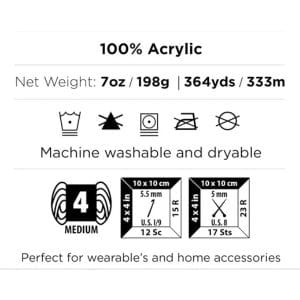
- Tub icon: machine vs. hand wash
- Triangle: bleaching rules
- Square: drying method
- Iron: ironing temperature
Keep a quick-reference chart handy in your project bag.
6) Country of Origin
Origin can hint at quality, ethics, and environmental footprint—some crafters prefer locally sourced fibers while others love Peruvian or Italian-spun yarns for their spinning traditions and finish.
7) Extras: Dye Lots & Special Treatments
Dye lot numbers ensure consistent color. If you run out, alternate skeins every 2 rows to blend shade differences. Look for special treatments, too:
- Superwash (wool): easier machine care
- Mercerized (cotton): stronger, shinier
Expert Tips for Reading Yarn Labels
- Swatch before you commit – even if the label’s gauge matches your pattern, your tension may vary.
- Mind seasonal suitability – wool blends shine in winter; cotton and linen excel in summer.
- Look for eco-certifications – OEKO-TEX® or GOTS can signal safer, more sustainable fibers.
- Consider project lifespan – acrylics handle frequent washing; delicate fibers need gentler care.
Quick Yarn Label Checklist
- Fiber Content – Does it fit your texture, drape, and care needs?
- Weight Category – Does it match your pattern?
- Gauge – Can you meet it with your hook/needle size?
- Yardage – Enough skeins plus ~10% extra?
- Dye Lot – All skeins from the same batch?
- Care Instructions – Easy to clean and maintain?
Shop Yarn by Fiber
Wool
- Warm, elastic, durableShop Now
Cotton
- Breathable & softShop Now
Acrylic
- Affordable & easy-careShop Now
Put Your Knowledge to Work
Next time you shop, pick up a skein and:
- Check the fiber content for suitability.
- Match the yarn weight to your pattern.
- Confirm gauge, or plan to swatch.
- Ensure yardage matches your needs.
- Verify dye lots match.
- Note care instructions for long-term wear.
Keep learning with our related guides: Yarn Weights, Yarn Terms Explained, and Understanding Yarn Ply & Texture.


